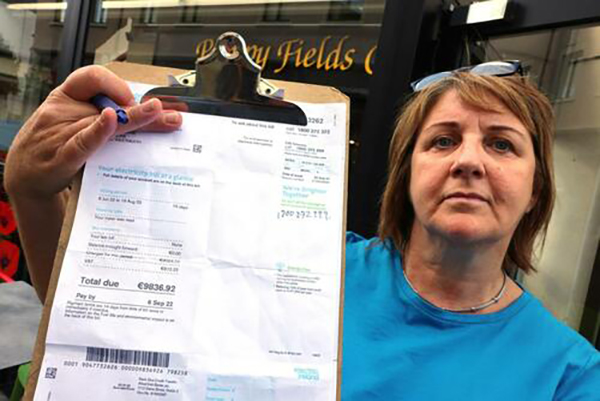Recruiting senior drivers could alleviate truck driver shortage, port backlogs
11/23/2021 / By Cassie B.

As the current supply chain backlogs continue, the problem of truck driver shortages is gaining a lot of attention. Although it has never been easy to find people willing to drive trucks, the problem has become particularly pronounced since the beginning of the year. The American Truckers Association reports that the U.S. is currently noting a record-breaking shortage of 80,000 truckers.
Speaking to Yahoo Finance Live, the Managing Director of Industrials – Airfreight and Surface Transportation at Cowen, Jason Seidl, remarked: “I’ve been around the trucking industry almost 30 years, and I’ve never quite seen it this bad.”
Many insiders have said that the problem is not a lack of drivers but instead a question of the industry failing to meet the needs of its potential employees due to, among other things, poor working conditions, and long wait times thanks to port congestion. Other factors are the high debt associated with obtaining trucking licenses and training and the deregulation of the trucking industry.
However, one potential solution to this problem is enlisting the help of older drivers. In a recent profile by Freight Waves, several truckers over the age of 50 shared how they became truck drivers later in life, and the piece explored how seniors could help to alleviate the growing shortage.
One woman they profiled was a 70-year-old widow who began her truck driving career at age 63 after her husband passed away. She found that the $1,500 a month she would get from Social Security would be tough to live on and is enjoying earning around $75,000 a year as a truck driver. They also spoke to a 57-year-old who started driving a truck full time after retiring from a 30-year career as the director of a school band. Both said that they found the work to be enjoyable as they like driving and felt that the pay was well worth it.

For some people, starting a truck driving career later in life makes sense in terms of timing. For example, one 69-year-old truck driver who started when he was 55 said that it was something he would not have considered doing when he was younger and still had children at home.
Recruitment efforts aren’t focusing on older drivers
However, drivers in this age range are the exception rather than the rule. The median age of over-the-road truck drivers is 46, while the average age of new drivers undergoing training is 35.
The Manager of Driver Recruiting at Prime Inc, Travis Bacon, said that it was rare to see recruits in their 60s or 70s in his firm’s CDL training program. Of the 120 new student drivers who start their orientation at the company each week, only a handful tend to be 50 or older.
According to the American Trucking Association, the industry could see the driver shortage reach 160,000 in just seven years’ time. Data from the U.S. Bureau of Labor shows that the trucking industry currently has roughly 2 million drivers.
As the industry continues to struggle to attract new drivers, some truck driving schools are reporting that incentives are helping boost enrollment. At the California Truck Driving Academy, business is reportedly booming, with annual enrollment rising by nearly 20 percent since last year.
In the recently passed Bipartisan Infrastructure Deal’s Drive Safe Act, a pilot program could see 18-to-20-year-olds with CDL licenses being allowed to transport goods across state lines, something that has not been permitted since the 1930s. However, appealing to older drivers, whose lifestyles may be more supportive of spending days or weeks at a time on the road, could well be the key to improving supply chain problems.
Sources for this article include:
Submit a correction >>
Tagged Under:
Bubble, Collapse, crisis, driver shortage, port backlogs, senior citizens, shipping, solution, supply chain, truck drivers, truckers, trucking industry
This article may contain statements that reflect the opinion of the author
RECENT NEWS & ARTICLES
COPYRIGHT © 2017 COLLAPSE.NEWS
All content posted on this site is protected under Free Speech. Collapse.news is not responsible for content written by contributing authors. The information on this site is provided for educational and entertainment purposes only. It is not intended as a substitute for professional advice of any kind. Collapse.news assumes no responsibility for the use or misuse of this material. All trademarks, registered trademarks and service marks mentioned on this site are the property of their respective owners.





















